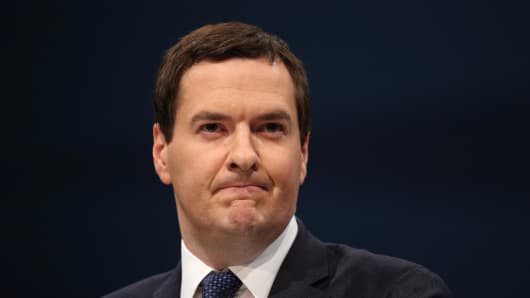When the global recession began several years ago, many experts urged the U.K. to "rebalance" its economy. The country had become addicted to growth brought about by consumer spending, they argued. Steps should now be taken to shift the emphasis towards export-led growth. This would help the U.K. mitigate the shock of any future downturn.
Today, the U.K. appears to be finally recovering—but the economy has yet to see significant increases in exports. U.K. real exports increased by a meager 1 percent in 2013, and the overall U.K. trade deficit widened to £26.7 billion ($45.7 billion), up from £23.3 billion in 2011. Yet a shift towards higher exports remains a key element of sustainable growth.
New ways of thinking can help policy leaders and executives push the economy in this direction. In my research for Accenture, I've identified five myths that are holding both companies and the government back from achieving economic growth that is better balanced between exports and consumer spending.
UK recovery 'real' but rate hike uncertainty looms
Myth #1: Export-led growth requires national champions. Government-led trade missions to emerging markets often focus on promoting the market leaders in a given industry—so-called national champions. However, this preoccupation means that the export potential of many highly dynamic smaller companies gets ignored. Export promoters need to spread the word about such companies as Piccalilly, a North Yorkshire-based business that exports organic and ethical clothes for babies and children to 25 countries through its online shop, retailers and distributors.


